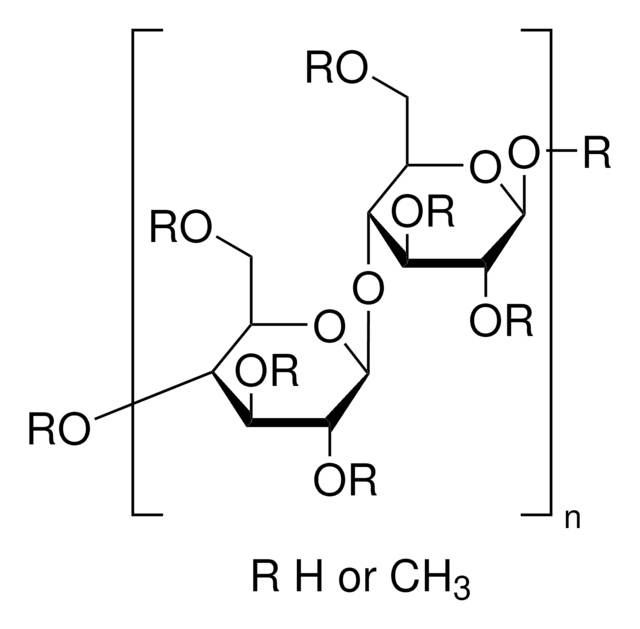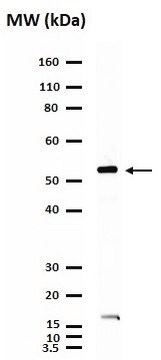5123
CD276 human
recombinant, expressed in E. coli, 0.5 mg protein/mL
About This Item
Empfohlene Produkte
Biologische Quelle
human
Rekombinant
expressed in E. coli
Beschreibung
0.1 mg recombinant human CD276 in 20 mM Tris-HCl buffer, containing NaCl, KCl, EDTA, L-arginine, DTT and glycerol.
Sterilität
Filtered sterilized solution
Assay
≥90% (SDS-PAGE)
Form
liquid
Verpackung
pkg of 100 μg
Konzentration
0.5 mg protein/mL
Methode(n)
cell culture | mammalian: suitable
Hinterlegungsnummer
NP_001019907
Versandbedingung
dry ice
Lagertemp.
−20°C
Angaben zum Gen
human ... CD276(80381)
Anwendung
Use this procedure as a guideline to determine optimal coating conditions for the culture system of choice.
1. Thaw CD276 and dilute to desired concentration using serum-free medium or PBS. The final solution should be sufficiently dilute so the volume added covers the surface evenly (1-10 μg/well, 6 well plate).
Note: Use 1 ml PBS per well in a 6-well plate.
2. Add 1 - 10 μg protein to each well and incubate at 2 to 10 °C overnight.
3. After incubation, aspirate remaining material.
4. Plates are ready for use. They may also be stored at 2-8 °C damp or air dried if sterility is maintained.
Sequenz
Angaben zur Herstellung
Lagerklassenschlüssel
10 - Combustible liquids
WGK
WGK 2
Flammpunkt (°F)
Not applicable
Flammpunkt (°C)
Not applicable
Hier finden Sie alle aktuellen Versionen:
Analysenzertifikate (COA)
Leider sind derzeit keine COAs für dieses Produkt online verfügbar.
Wenn Sie Hilfe benötigen, wenden Sie sich bitte an Kundensupport
Besitzen Sie dieses Produkt bereits?
In der Dokumentenbibliothek finden Sie die Dokumentation zu den Produkten, die Sie kürzlich erworben haben.
Unser Team von Wissenschaftlern verfügt über Erfahrung in allen Forschungsbereichen einschließlich Life Science, Materialwissenschaften, chemischer Synthese, Chromatographie, Analytik und vielen mehr..
Setzen Sie sich mit dem technischen Dienst in Verbindung.







